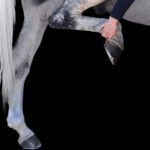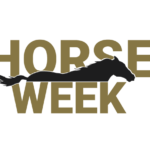April 25, 2011 — The New Jersey Department of Agriculture has quarantined a second horse farm in Colts Neck as part of its investigation into an outbreak of the neurologic form of Equine Herpes Virus Type 1, or EHV-1, that has led to the death of one horse and sickened five others.
The disease was discovered by a private veterinarian treating a sick horse. The veterinarian euthanized the filly on April 13 after she failed to respond to treatment. Five other affected horses are responding to treatment and recovering from their illnesses.
The NJDA’s tracing activities to determine the extent of the outbreak led to the second quarantine. No new confirmed cases of EHV-1 have been reported at this time.
The first farm was quarantined earlier this month. Under this quarantine farm personnel must utilize biosecurity measures, such as disinfectant foot baths, coveralls, disposable gloves, hand washing and disinfectant hand gels, and non-sharing of tack between horses. The quarantine is expected to last 21 days, unless more horses become ill. All quarantines are based on risk assessment.
EHV-1 spreads quickly from horse to horse, has a high morbidity, and can cause a wide range of symptoms, from a complete lack of clinical signs to respiratory problems, especially in young horses, and spontaneous abortions in pregnant mares. The neurologic form of EHV-1 can cause an acute paralytic syndrome, which results in a high mortality. The incubation period of EHV-1 is typically two to 10 days. The virus spreads readily through direct contact with infected materials. The virus does not affect humans and other domestic animals with the exception of llamas and alpacas.
Concerned owners should consult their veterinarian prior to taking any action, as the clinical signs of infection with the neurologic form of EHV-1 are common to many other diseases. The neurologic form of EHVis a reportable disease in New Jersey. If a horse is exhibiting neurologic signs or characteristics of EHV-1, owners are directed to call their veterinarian immediately. For more information, click here.





